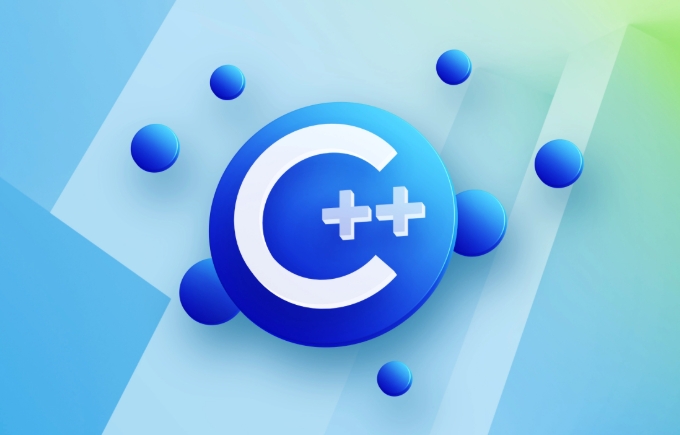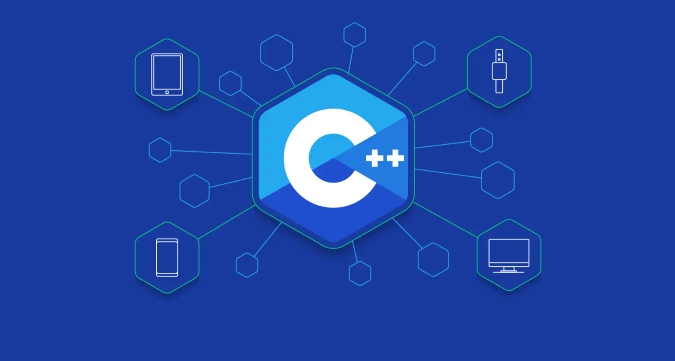The most effective way to learn C is to learn while doing the actual project. ① Start practicing with simple projects, such as calculators, file encryption tools, student information management systems, contact basic grammar and hands-on practice; ② Learn to use object-oriented and STL libraries, try to encapsulate logic with classes, and be familiar with common components such as vectors, maps, and fstream; ③ Challenge more complex projects, such as online chat rooms, mini games, thread pools, and contact with advanced topics such as multi-threading, network communications; ④ Use open source projects and community resources to make continuous progress, debug more, check documents, and ask questions, and insist on writing code to accumulate practical experience.

The most effective way to learn C is not to sing grammar books, nor to just watch videos without writing codes, but to directly apply to the project. Learning while doing can not only deepen understanding, but also accumulate practical experience. If you are already a little basic and want to improve your C ability through actual projects, this article can give you some directions and suggestions.

Start practicing with a simple project
Don't think about building a game engine or database system as soon as you come up. Start with small projects that you can complete independently, such as:

- Write a command line version of the calculator
- Implement a simple file encryption tool
- Make a student information management system (using structure or class to manage data)
Although these projects are small, they can expose you to basic content such as variables, control flows, functions, file reading and writing. The key is to write it yourself, rather than copying it through the example code. When you encounter problems, check the information, debug, and correct bugs. This is the process of growth.
For example: When you build a "student information management system", it is not just as simple as saving a few names and grades. You can try adding sorting functions, searching by conditions, saving to a file, reading it out and continuing operations, etc. With each function added, you have to think about how to organize the code structure and how to handle input and output, which is much more useful than just learning grammar.

Learn to use object-oriented and standard libraries
What makes C powerful is its object-oriented nature and STL (standard template library). After you finish a few small projects, you should start trying to encapsulate logic with classes.
For example, to build a simple bank account management system:
- Define Account class, including balance, account and other attributes
- Provide methods to deposit, withdraw and query balances
- Use vector to store multiple accounts
- Save the data to a text file, and the program can be loaded back next time you start it
In this process, you will be exposed to common features such as classes and objects, constructors, member functions, vectors, maps, fstreams, etc. STL is one of the core tools of C programming. After getting familiar with it, you will find that many complex logic can be solved with a few lines of code.
Some key points:
- Don't be afraid to use STL, it is a tool to help you improve your efficiency
- Take a look at the common classes and functions of vector, string, map, algorithm
- When encountering performance bottlenecks, then consider optimization, and initially, implement functions.
Challenge more complex projects and get in touch with underlying mechanisms
Once you have a certain understanding of basic syntax, object-oriented, and STL, you can challenge more difficult projects, such as:
- Implement a small web chat room yourself (involving socket programming)
- Write a simple game (such as snake greed or mine sweeping)
- Build a memory pool or thread pool
- Implement a simple HTTP server
This type of project will expose you to advanced topics such as multi-threading, network communication, resource management, etc. Especially when it comes to the bottom layer, you will find the flexibility and power of C.
For example, when writing thread pools, you will use knowledge such as mutex, condition_variable, function, bind, future, etc. These are common components in modern C development.
Suggested learning paths:
- First find open source projects to refer to implementation ideas
- Try writing a simplified version yourself and don't pursue perfection from the beginning
- Debug more, check more documents, ask more questions
- Familiar with GDB or Visual Studio debuggers, helps troubleshoot problems
Continuous progress with community and resources
The process of learning C will not be smooth, and it is normal to encounter problems. At this time, you must learn to make good use of existing resources:
- Searching for keywords on Stack Overflow, you can usually find similar questions
- Find the project reference implementation method written by others on GitHub
- Watch some high-quality project teaching videos on B station/YouTube
- C official documentation and cppreference.com are authoritative references
In addition, it is also helpful to join some technology communities, such as Reddit's r/cpp, C topics on Zhihu, WeChat technology groups, etc. With more communication, you will find that your horizons are also expanding.
Basically that's it. C is a language that requires constant practice, and it is difficult to truly master it just by reading books. Choose a project that you are interested in and insist on making it out. You will definitely learn a lot in the process. It's not complicated, but what is easy to ignore is that it really requires persistence in writing code.
The above is the detailed content of C tutorial with project-based learning. For more information, please follow other related articles on the PHP Chinese website!

Hot AI Tools

Undress AI Tool
Undress images for free

Undresser.AI Undress
AI-powered app for creating realistic nude photos

AI Clothes Remover
Online AI tool for removing clothes from photos.

Clothoff.io
AI clothes remover

Video Face Swap
Swap faces in any video effortlessly with our completely free AI face swap tool!

Hot Article

Hot Tools

Notepad++7.3.1
Easy-to-use and free code editor

SublimeText3 Chinese version
Chinese version, very easy to use

Zend Studio 13.0.1
Powerful PHP integrated development environment

Dreamweaver CS6
Visual web development tools

SublimeText3 Mac version
God-level code editing software (SublimeText3)

Hot Topics
 C Polymorphism : is function overloading a kind of polymorphism?
Jun 20, 2025 am 12:05 AM
C Polymorphism : is function overloading a kind of polymorphism?
Jun 20, 2025 am 12:05 AM
Yes, function overloading is a polymorphic form in C, specifically compile-time polymorphism. 1. Function overload allows multiple functions with the same name but different parameter lists. 2. The compiler decides which function to call at compile time based on the provided parameters. 3. Unlike runtime polymorphism, function overloading has no extra overhead at runtime, and is simple to implement but less flexible.
 What Are the Different Kinds of Polymorphism in C ? Explained
Jun 20, 2025 am 12:08 AM
What Are the Different Kinds of Polymorphism in C ? Explained
Jun 20, 2025 am 12:08 AM
C has two main polymorphic types: compile-time polymorphism and run-time polymorphism. 1. Compilation-time polymorphism is implemented through function overloading and templates, providing high efficiency but may lead to code bloating. 2. Runtime polymorphism is implemented through virtual functions and inheritance, providing flexibility but performance overhead.
 C : Is Polymorphism really useful?
Jun 20, 2025 am 12:01 AM
C : Is Polymorphism really useful?
Jun 20, 2025 am 12:01 AM
Yes, polymorphisms in C are very useful. 1) It provides flexibility to allow easy addition of new types; 2) promotes code reuse and reduces duplication; 3) simplifies maintenance, making the code easier to expand and adapt to changes. Despite performance and memory management challenges, its advantages are particularly significant in complex systems.
 C Destructors: Common Errors
Jun 20, 2025 am 12:12 AM
C Destructors: Common Errors
Jun 20, 2025 am 12:12 AM
C destructorscanleadtoseveralcommonerrors.Toavoidthem:1)Preventdoubledeletionbysettingpointerstonullptrorusingsmartpointers.2)Handleexceptionsindestructorsbycatchingandloggingthem.3)Usevirtualdestructorsinbaseclassesforproperpolymorphicdestruction.4
 C tutorial for people who know Python
Jul 01, 2025 am 01:11 AM
C tutorial for people who know Python
Jul 01, 2025 am 01:11 AM
People who study Python transfer to C The most direct confusion is: Why can't you write like Python? Because C, although the syntax is more complex, provides underlying control capabilities and performance advantages. 1. In terms of syntax structure, C uses curly braces {} instead of indentation to organize code blocks, and variable types must be explicitly declared; 2. In terms of type system and memory management, C does not have an automatic garbage collection mechanism, and needs to manually manage memory and pay attention to releasing resources. RAII technology can assist resource management; 3. In functions and class definitions, C needs to explicitly access modifiers, constructors and destructors, and supports advanced functions such as operator overloading; 4. In terms of standard libraries, STL provides powerful containers and algorithms, but needs to adapt to generic programming ideas; 5
 Polymorphism in C : A Comprehensive Guide with Examples
Jun 21, 2025 am 12:11 AM
Polymorphism in C : A Comprehensive Guide with Examples
Jun 21, 2025 am 12:11 AM
Polymorphisms in C are divided into runtime polymorphisms and compile-time polymorphisms. 1. Runtime polymorphism is implemented through virtual functions, allowing the correct method to be called dynamically at runtime. 2. Compilation-time polymorphism is implemented through function overloading and templates, providing higher performance and flexibility.
 What Are the Various Forms of Polymorphism in C ?
Jun 20, 2025 am 12:21 AM
What Are the Various Forms of Polymorphism in C ?
Jun 20, 2025 am 12:21 AM
C polymorphismincludescompile-time,runtime,andtemplatepolymorphism.1)Compile-timepolymorphismusesfunctionandoperatoroverloadingforefficiency.2)Runtimepolymorphismemploysvirtualfunctionsforflexibility.3)Templatepolymorphismenablesgenericprogrammingfo
 C Polymorphism: Coding Style
Jun 19, 2025 am 12:25 AM
C Polymorphism: Coding Style
Jun 19, 2025 am 12:25 AM
C polymorphismisuniqueduetoitscombinationofcompile-timeandruntimepolymorphism,allowingforbothefficiencyandflexibility.Toharnessitspowerstylishly:1)Usesmartpointerslikestd::unique_ptrformemorymanagement,2)Ensurebaseclasseshavevirtualdestructors,3)Emp






